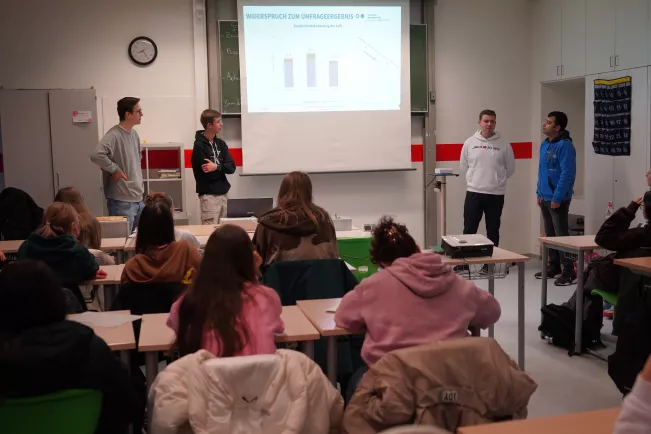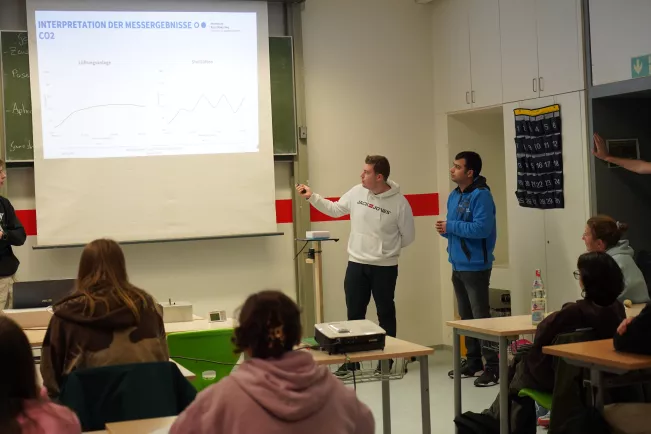Department of Engineering and Communication
Improving concentration in the classroom with a self-built ventilation system


It can't have been due to the air quality that a few students put their heads down on the table during the students' presentation. Rather, the first lesson on this Friday morning probably came too early for some. As a result, they missed the exciting results that the H-BRS students presented based on the measurement of temperature, CO2 content and humidity.
According to the evaluations, intermittent ventilation, which played an important role in many public facility concepts during the coronavirus pandemic, is better than not ventilating at all. However, other methods are more effective: "Intermittent ventilation brings a lot of fresh air into the room in the short term, but the rest of the time it builds up again. As a result, the air quality deteriorates over the course of the day," said Moritz Rohde, a student on the project. In addition, the fresh air is only distributed very unevenly in the room, which only has windows on one side. "Not only because of the air quality, but also in terms of temperature, shock ventilation is not useful. This became clear during our measurements in November and December, when it quickly became very cold, especially near the windows," added Tobias Lautner.
The measurements showed that improved air quality can be achieved by a permanent air supply with the windows tilted back. The values were best when using the built-in ventilation systems. The system captures the warm air that pupils breathe and transports it outside using fans. At the same time, fresh air is fed into the classroom from the open window. This cycle continuously renews the air and improves the air quality.

The ventilator window ventilation system was developed by the Max Planck Institute for Chemistry in Mainz (MPI C) during the coronavirus pandemic and has already been installed in over 2,000 German classrooms. In addition to improving air quality, the system is also designed to reduce the risk of infection. Although the students were unable to confirm this due to a sensor error in their measurement, there are many indications that this is the case: "The other measured values, in particular the CO2 content of the air, show that the air quality has increased significantly as a result of using the system. This is probably why the number of aerosols has also decreased," said Alexander Friesen during the presentation in the classroom.
In addition, the students asked the pupils how they rated the respective condition of the room, both in terms of air quality and the extent to which they found the noise of the ventilation system disturbing. Here, too, it became clear that a stuffy classroom and large temperature fluctuations are perceived as unpleasant.
Class teacher Leo Sträßer was delighted with the students' results: "Of course it's great for us that we were able to improve the indoor air with the self-built systems. If the university plans further practical projects, we will be happy to help. I would love to equip all the classrooms with the ventilation systems".